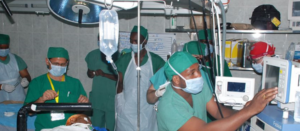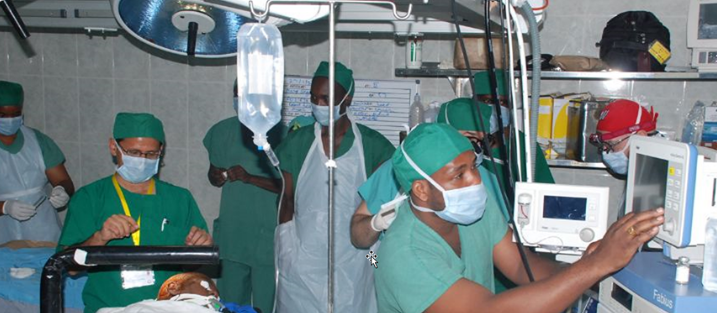Neurosurgery in Developing Countries: Challenges and Opportunities
Introduction to Neurosurgery in the Developing World
Neurosurgery is a specialized field of medicine concerned with the diagnosis and treatment of abnormalities of the nervous system. Neurosurgery is highly essential for health care. There are many challenges that neurosurgical practice poses in most developing countries, which limits the delivery and quality of care. Despite these constraints, great opportunities still exist to develop and expand neurosurgical services and improve outcomes.
Neurosurgery in Developing Countries: Challenges
Limited Access to Trained Professionals
One of the major problems faced by most developing countries is the shortage of skilled neurosurgeons. Most of these regions have very few facilities and training programs, making the supply of qualified professionals really low. This, in turn, creates a situation where either patients must travel long distances or forgo the treatment altogether.
Inadequate Infrastructure and Equipment
Another critical challenge has to do with the lack of modern medical infrastructure and equipment. Neurosurgical procedures are supposed to have special tools and facilities, which, in developing areas, are non-existent or are very outdated. This limitation affects not only complex surgeries that may be performed but also patient safety and outcomes.
Financial Constraints and Healthcare Funding
Financial barriers are one of the most important obstacles to healthcare providers and patients. Poor funding of healthcare systems means neurosurgical departments are underresourced. Most patients in developing countries cannot afford neurosurgical care because of its high cost, further limiting access to necessary treatments.
Lack of Research and Data
These gaps in comprehensive studies and data on neurosurgical conditions make it hard to develop targeted interventions or policies in developing countries. In turn, targeted policy development is extremely difficult without comprehensive data that indicate the complete burden of neurosurgical need or enable resources to be distributed accordingly.
Opportunities to Improve Neurosurgery
Enhanced Training and Education
Therefore, investment in neurosurgical training and education becomes important in addressing the shortage of skilled professionals. Partnerships between international institutions, scholarships offered, and creating local training programs will go a long way in building a robust workforce. Virtual training and telemedicine also provide innovative solutions for expanding access to education.
Improving Infrastructure and Technology
Upgrading medical infrastructure and acquiring modern neurosurgical equipment are key steps toward improvement. Governments and international organizations can work together to finance and support the establishment of state-of-the-art facilities. In addition, technology like telemedicine can help bridge gaps in access and expertise.
Strengthening Financial Support Systems
Financial barriers have to be approached from many sides: health insurance schemes, subsidy for medical costs, and increased government investment in the healthcare system will all help to improve access to neurosurgical care. International aid and philanthropic contributions are also important in supporting such initiatives.
Research and Data Collection
Research and data collection lie at the core of informed decision-making and policy development. Neurosurgical registries, epidemiological studies, and collaboration with international research institutions offer immense insight into the neurosurgical landscape in developing countries.
Case Studies and Success Stories
- Rwanda: Creating a Neurosurgical Network
Much has been done in Rwanda in the development of neurosurgical services. With partnerships from international organizations and investment in training programs, the country has been able to establish a growing network of neurosurgeons. These efforts have resulted in improved access to care and better patient outcomes.
- India: Leveraging Technology for Better Care
Telemedicine has changed the face of neurosurgery in India. It connected rural areas to urban hospitals and made timely consultation, diagnosis, and even remote surgical guidance possible. The concept increased access to neurosurgical services manifold in unserved areas.
- Brazil: Increased Access through Public Health Initiatives
Public health efforts in Brazil have been targeted at improving neurosurgical care access to the poorest classes. Government programs, which subsidize a portion of medical expenses and cover the costs of surgeries for the indigent, have greatly improved access to neurosurgical services.
Conclusion
While many challenges face neurosurgery in developing countries, there are some equally compelling opportunities for improvement. Emphasizing education and training, infrastructure development, financial barriers, and research will ensure a resilient neurosurgical healthcare system for these countries. It is now high time for the governments, international organizations, and the medical fraternity to come forward to overcome such challenges and to realize the full potential of neurosurgical care in developing regions.

Also Read :
